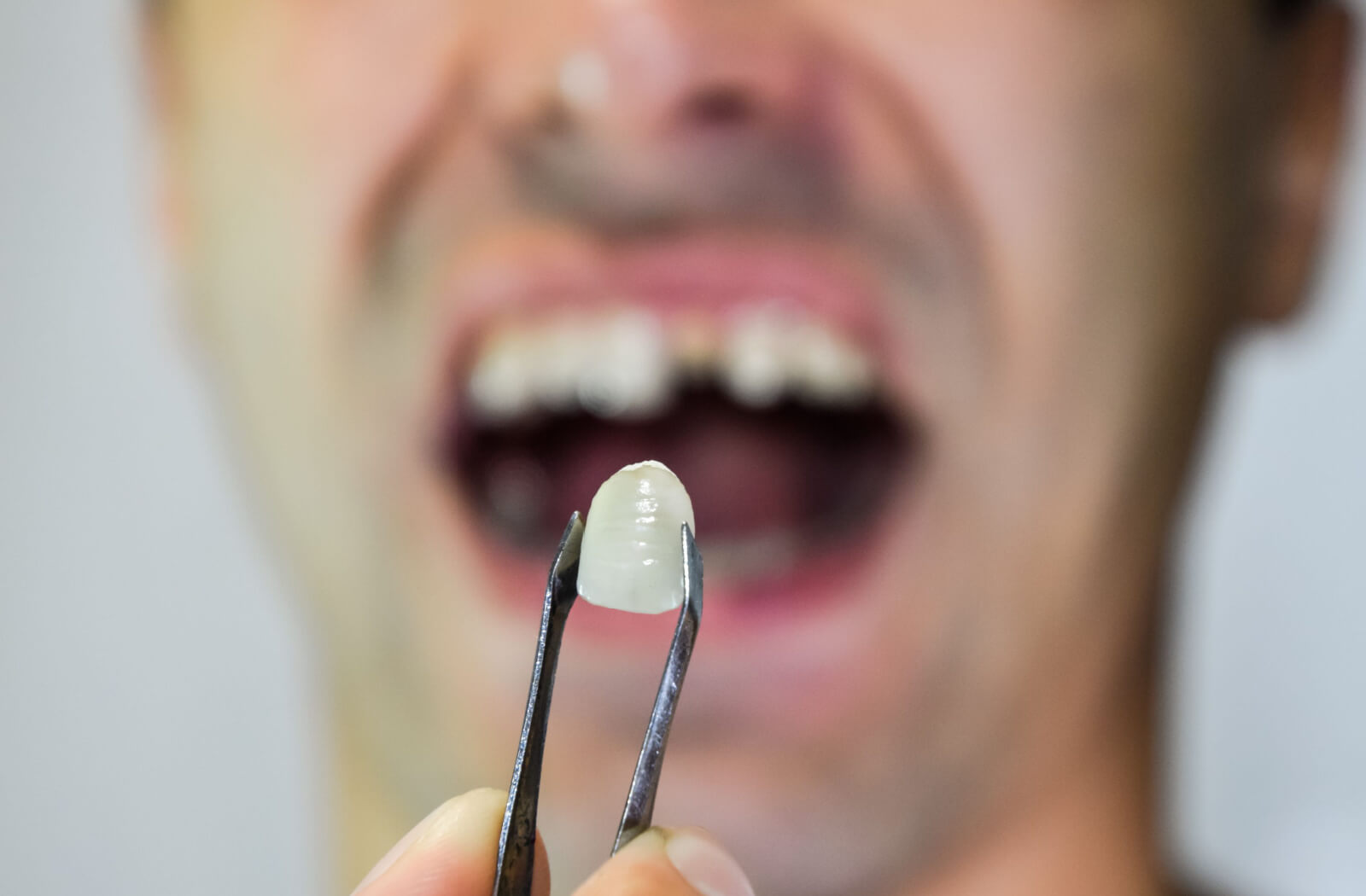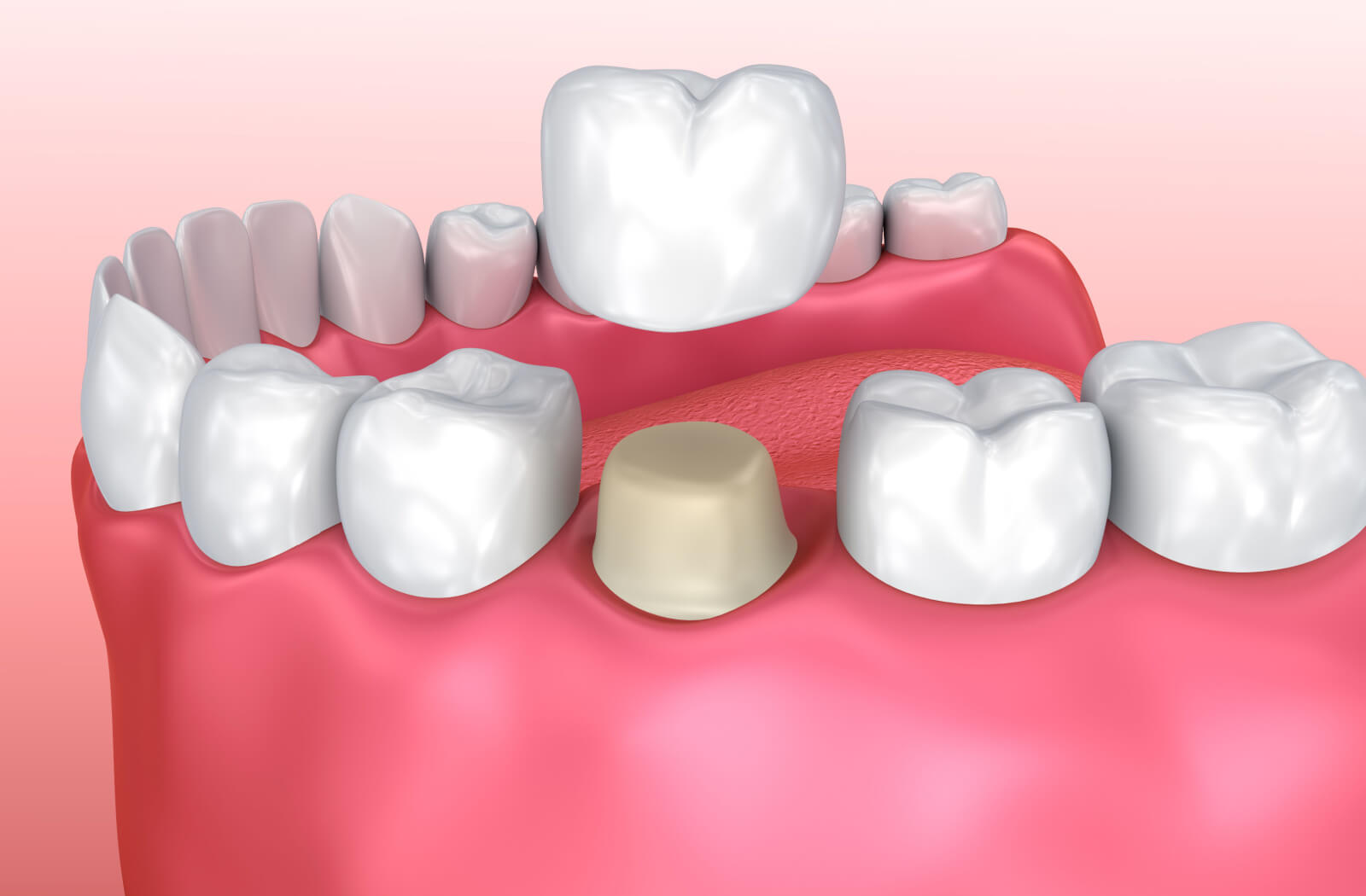Dental crowns are one of the most common restorative dental procedures we perform at Ti Dental. Think of it like a cap for your tooth that helps when you’ve experienced damage or disease in the area. But how much tooth is needed for a dental crown?
In general, you’ll need to have about 1/4 of the original tooth. But this does depend on a few factors. You’ll need to visit your dentist for a consultation so they can examine the area and discuss your options.
What Is a Dental Crown?
A dental crown is a type of restorative dentistry that completely caps or circles a damaged or chipped tooth. It’s ideal for when you have a cracked tooth or some kind of dental damage.
First, the dentist will need to reshape the existing tooth slightly so it’s the right size for a crown. Then, they’ll thoroughly examine the tooth to determine what type of crown you’ll need.
At Ti Dental, we’ll likely recommend one of two options:
- A lab-made crown
- A same-day CEREC crown
If we believe a lab-made crown is the proper answer for your dental problem, we’ll begin by taking an impression of the tooth. We’ll send the impression to a special lab that can make the crown to fit your unique tooth. In the meantime, we’ll place a temporary crown to protect the area, and in about 7-10 business days, the permanent crown will be ready to be placed.
If we think a same-day CEREC crown is the best solution, we’ll take a digital scan of the area. This scan is sent to an in-house machine that can create the crown while you relax in a chair. Then, we’ll bond it to your tooth permanently.

When Would a Dentist Place a Dental Crown?
Typically, a dentist will recommend a crown if you have a weak tooth or one that’s already chipped. They’re ideal for:
- Bite alignment problems
- Chipped teeth
- Cracks
- Old fillings that aren’t effective anymore
- Tooth decay
Sometimes, they can even be ideal simply as a cosmetic modification. These crowns cover the tooth’s surface and hold it together, which can help prevent problems from worsening.
What Happens If You Don’t Have Enough Tooth for a Crown?
Sometimes, there might be a problem—what if too much of the tooth is damaged? How much of a tooth do you actually need for a dental crown?
Typically, a dentist only needs about 1/4 or so of the tooth before recommending a different treatment. You’ll need to speak with your dentist during a consultation so they can determine if you have enough of the original tooth to attach a crown.
However, this isn’t always the case. There’s a process called a “core build-up” that can often help. To do this, they’ll use a special filling material to build up the structure of the tooth itself. This provides a solid base so they can attach the crown.
So even if you have less than 1/4 of the tooth, you can still get a crown to fix a damaged tooth!
Alternatives to Dental Crowns
In some situations, a crown might not be ideal. Maybe the tooth is too damaged, or there may be diseased tissue that can’t be fixed with a crown. If so, your dentist may recommend another form of restorative dentistry like:
- Dental implants. These are an ideal alternative if your tooth is too damaged. A titanium post is placed in the jawbone, and an artificial tooth is attached to act as a long lasting solution.
- Dental bridges. Crowns are attached to the surrounding teeth, and a “bridge” fills the gap with an artificial tooth.
- A root canal. If the tooth is damaged to the point where even the pulp is affected, your dentist may recommend a root canal. When this happens, the decayed tooth tissue and pulp are removed, and the cavity is filled to seal the tooth properly. A crown is then placed on the tooth to protect it from damage.
It can help to spend some time talking to your dentist during your next appointment. They will explain your options and the pros and cons so you can make an informed decision!
Do I Need a Dental Crown?
If you think you might need a dental crown, come visit us at Ti Dental. Whether you’re experiencing discomfort or just don’t like the visual appearance of your teeth, our team of dentists is here to help. Request an appointment with us today so we can work together to find a solution for you!








